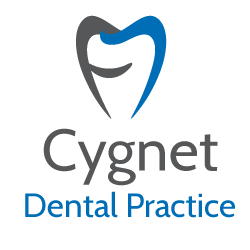Continuing Our ABC OF Dentistry – Part 2
Continuing our alphabetical look at some dental terminology you might have heard at the Cygnet Dental Practice
 We hope that you found our last ‘ABC’ blog interesting and may have learned a little more about dentistry in the process.
We hope that you found our last ‘ABC’ blog interesting and may have learned a little more about dentistry in the process.
Last time we ended on G for ‘gingivitis’, so in this week’s blog we will start again with the letter H.
H- Halitosis – The word ‘halitosis’ originates from a Latin name for bad breath and was used by a well known mouthwash company back in 1928, rather than ‘bad breath’ as it sounded more medical and therefore more important that it was treated.
There are two reasons that bad breath can be problematic. The first of those is obvious if you have stood too close to someone who has it when they are talking. The other, and where it often originates from is that it is a common symptom of gum disease. If people start stepping back when you talk to them, it’s time to have your gum health checked by one of our Wickford dentists.
I – Implant – As in ‘dental implant’. This is an increasingly popular way of replacing a missing tooth, or teeth. Increasingly considered to be the ‘gold standard’, there is no doubt that these currently offer the most realistic way to replace lost teeth. Whilst dentures and bridges can offer some benefits, neither of them are ‘rooted’ in the jawbone as an implant is, and therefore can’t offer the same level of stability. A dental implant not only offers a replacement tooth, but a replacement tooth root also, making it incredibly strong and stable, and, with the correct care, long lasting too.
J – Jaw (and jawbone) – We mentioned dental implants above. These are placed by inserting them into the jawbone in place of a tooth root. For this to be successful, there needs to be a sufficient amount of healthy bone. If this is not available, a bone graft or a sinus lift may be an option prior to the procedure. We also use our jaws to bite and grind and occasionally, problems occur such as TMJ. This is an often painful jaw problem that can also cause painful headaches and other problems.
K – Klean (your teeth) – OK .. we had to cheat a little on this one but it does present a good opportunity to remind you how important it is to clean your teeth well twice a day, both morning and night. You should also floss too. Remember, after your night time clean, not to eat or drink anything other than water before you go to sleep.
L – Local anaesthetic – Most of our Wickford patients will be familiar with this. Administered in the form of an injection, it is used to numb the area where a procedure is about to be carried out. Although we know that it may not feel pleasant for a second or two, we can assure you that treating a tooth without it would be much more uncomfortable! Patients might be interested to know that the discomfort you feel when we inject you is typically the anaesthetic meeting the bloodstream and not the actual moment when the needle pierces the gum.
M – Malocclusion – Also known as a bad or incorrect bite. This occurs when our teeth become crooked and uneven. This can cause additional pressure to be put on certain teeth and can lead to the wearing down of enamel or even breakages of the tooth. TMJ (see earlier) may also occur where this is a problem. The good news is that crooked teeth can now be straightened using discreet modern orthodontic systems such as Invisalign.
N – Nutrition – A good healthy diet is important for our teeth. Minerals such as calcium are essential if we want to have strong healthy teeth. A good mixed diet should provide for all the essentials. Naturally, we should also be aware that some foods, especially those containing high levels of sugars and acids, can be very harmful for our teeth and may well result in enamel erosion and tooth decay.
O – Oral health and Oral cancer – Dentists make sure to check the health not only of your teeth but the oral cavity in general. Whilst most soft tissue problems revolve around your gums and problems such as gingivitis, any soft tissue is potentially vulnerable to serious issues such as oral cancer. We are in an excellent position to be able to spot potential early warning signs and may refer you to your GP for further investigation if we see anything that may concern us at all.
P – Periodontitis – This is the most advanced and serious form of gum disease. In fact, it not only affects the gums but also the roots of the tooth and, potentially, the supporting bone structure too. As this becomes damaged and degrades, it starts to lose the ability to hold the tooth root in place, causing the tooth to become wobbly and potentially even fall out. Preventative gum health care in the form of good cleaning and regular scale and polish treatments should be carried out long before it reaches this stage. It can sometimes be treated with a ‘deep clean’ although success is not guaranteed. Prevention is key.
We hope that you enjoyed this section of our ongoing ABC series and will most likely conclude next time. In the meantime, if you have a dental problem or wish to register at our Wickford practice, you can call the Cygnet Dental Practice on 01268 733078.
